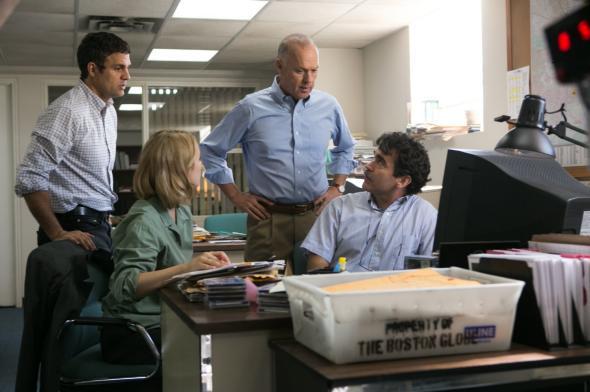Fordham Preparatory School, a prestigious Jesuit boys’ school in the Bronx, has deemed a former student’s allegations that a teacher sexually abused him in 1984 “credible,” the New York Times reported Monday.
The assault took place shortly after graduation according to the former student, Michael Meenan, who says that he decided to spend the night at a house where he’d been celebrating with peers and awoke to find religious studies teacher Fernand Beck performing oral sex on him while he slept. Meenan says he reported the assault not long after it occurred with no apparent effect.
He was inspired to do so again, at least in part, by some of the real-life people behind the Academy Award-winning movie Spotlight—and by the conversation about sexual abuse that the movie, about the Boston Globe’s early 2000s exposé of child sexual abuse by Catholic priests, has helped create. One of Meenan’s former Fordham classmates, the actor Neal Huff, played victim’s advocate Phil Saviano in the film. Huff put Meenan in touch with the actual Mitchell Garabedian, the take-no-prisoners victims’ attorney portrayed in the movie by Stanley Tucci, and Garabedian contacted Fordham in March on Meenan’s behalf, according to the Times. Now, Fordham says Beck is no longer on its faculty, though it won’t specify whether he was fired or resigned.
The real “Spotlight” team—the Globe’s investigative arm—has lately turned its attention to stories like Meenan’s: long-buried allegations of sexual abuse that haunt New England’s poshest private schools. In May, a Spotlight feature revealed that “[a]t least 67 private schools in New England have faced accusations since 1991 that staffers sexually abused or harassed more than 200 students.” The story continued:
At least 90 lawsuits or other legal claims have been filed on behalf of the alleged victims, and at least 37 school employees were fired or forced to resign because of the allegations. In addition, nearly two dozen eventually pleaded guilty or were convicted on criminal charges of abusing children or related crimes.
The Globe also found 11 cases in which private school employees who were accused of sexual misconduct went on to work at other schools — an echo of the Catholic church scandal in which abusive priests were often moved to other parishes.
There’s another obvious resonance between the scandal in the Boston archdiocese and the traumas that the Spotlight team is bringing to light today: Many of the victims stepping forward are male. Movements for rape survivors have a history of forgetting that men can suffer sexual violence as well as perpetrate it. As Steve LaPore, founder of the advocacy group for male survivors 1in6, put it to the Huffington Post: “In many cases we find that it’s more difficult for men to be believed, or to take their case seriously.”
But ideas about who can be a rape survivor are finally stretching to fit reality—a fact that many attribute to the success of the Spotlight film, and to the revelations about Penn State coach Jerry Sandusky’s history of sexually abusing boys from several years earlier. New research is also driving the reassessment. A 2014 paper from two UCLA law professors, published in the American Journal of Public Health, suggested that men and women may experience nonconsensual sexual contact at almost equal rates. Last year, in a Washington Post-Kaiser Family Foundation poll of current and recent college students, one in 20 men, and one in five women, said they were sexually assaulted while in school.
Though underreporting makes it hard to collect reliable data on the number of male victims, those who’ve come forward often talk about feeling relief when they realized that their gender didn’t invalidate the horror of what had happened to them. “Guys are supposed to be strong, not supposed to let people rape us,” one survivor, identified as Adam, told CNN in March. He told other men to “speak up and don’t be afraid people won’t believe you, because they will.” It’s messages like this one that appear to have emboldened Meenan, and the many survivors who’ve spoken in the last year with the Globe’s Spotlight team. And it’s stories like theirs that are helping Americans to see rape as a crime that crosses gender lines, and to make Adam’s hopeful statement true.
